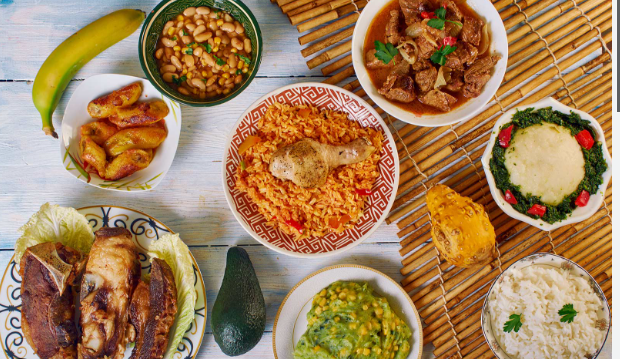I was doing a chat with Millie and Olivia and I came to realize that talking about the places that they would like to go, both of them were yearning to go to different places and I found out that Olivia wanted to come to Kenya which was exciting. Millie wanted to go to South Africa which was also excellent. I’m writing about the Kenyan culture so that I can describe to people what they will experience when they come to Kenya.
Dining is one of those unspoken rules in many Kenyan homes. Food in Kenya, as with many other parts of the world, is meant to bring people together. Any time one has guests coming over or even a friend dropping by, they will almost always make an effort to get you something to eat. Even in the villages, whether you have planned to visit someone or are just passing through, you will most likely be greeted with food. As a result, refusing whatever is offered is extremely impolite. You’d rather request a very small portion than refuse entirely.
Kenyans, like most Africans, place a high value on respecting and honoring their ancestors. However, this should not be perceived as ancestors’ worship but rather a belief that when someone dies, their spirit lives on and must be recognized. In Kenya, we also have many national parks and game reserves which you will enjoy visiting and exploring.
As unbelievable as this sounds, it is true. Not many Kenyans keep time when it comes to casual meetings. Most Kenyans exist in time rather than for time. In Kenya, mobile banking is the norm. People use their mobile phones to send money to one another, pay bills such as rent, water, and electricity, as well as borrow money from banks. Kenyans are more group-oriented than individualistic. This long-standing tradition is commonly referred to as “Harambee” in Swahili which means “pulling together.”
Every contact between people in Kenya starts with a greeting. Even when entering a shop, you shake hands and make polite small talk with the shopkeeper. Shaking hands upon meeting and departure is normal between all the men present. Moreover, most Kenyans communicate through gestures when emphasizing something. Speaking loudly is generally experienced during business disagreements or within rural areas, where most people speak with loud tones.
Kenyans share everything from clothes to food, and even space! At home, personal items are often shared with every member of the family. Religion is also integrated into many Kenyans’ lifestyles. A majority of the country’s population are Christians, with the rest being Muslims and other religions. The foods that are universally eaten in Kenya are ugali, sukuma wiki a Swahili phrase that means “to push the week”, a simple dish made with greens similar to kale or collards., and barbecue beef.
Written by: Linet Sakwa

May 28, 2023 at 9:45 pm
Fantastic piece about Kenya .
I know the B other students in England loved it too !!
Well done !